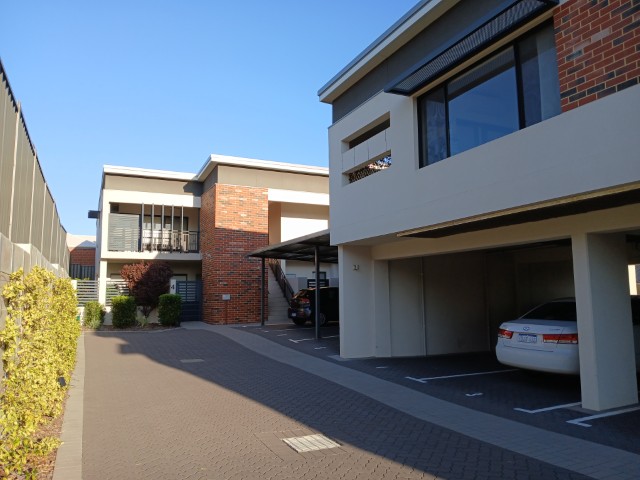Strata Secrets – What To Know Before You Buy

Strata Secrets – What You Must Know Before You Buy
If you’re considering buying an apartment, villa, or townhouse in Western Australia, many of them are strata properties. Strata living is a popular choice, more affordable, lower maintenance, and often in prime locations, but it comes with rules and responsibilities that many buyers don’t realise until it’s too late.
Whether you’re a first-time buyer, downsizer, or investor, here’s what you really need to know before you sign that contract.
You’re Buying More Than Just Four Walls
When you buy a strata property, you’re purchasing:
-
A private lot – the unit, villa, or townhouse that is yours exclusively
-
A share in the common property – areas shared with other owners such as driveways, gardens, foyers, pipes, roofing, and external walls
This shared ownership brings shared responsibility. You’ll automatically become part of the strata company, which governs how the scheme is run and maintained. That includes voting on key decisions and contributing financially.
Know Your Type of Strata
In Western Australia, strata schemes fall into a few categories:
-
Built Strata: Boundaries are defined by the physical structure of the building. Common in apartment blocks.
-
Survey-Strata: Boundaries are marked by a licensed surveyor, not buildings. These feel more like traditional land ownership.
-
Single-Tier Strata: No lots are stacked on top of each other.
-
Leasehold Strata: Ownership is for a fixed term (up to 99 years), and you’re technically leasing the lot rather than owning it outright. You don’t see many of these but ask the Selling Agent about this.
Don’t assume your ownership rights based on the appearance of the building. Always check the strata or survey-strata plan before making an offer.
Check the Documents Before You Buy
Pre-Contractual Strata Disclosure (you are required to sign for having received this) is the document you’ll want before writing an offer and can be a very large document. Take your time to read through and understand it, asking questions of the Selling Agent if you want to clarify anything. Before you commit, review the following:
-
Strata Plan – clarifies what you own and what is common property
-
By-laws – the rules governing behaviour, renovations, pets, and noise
-
Schedule of Unit Entitlements – determines your share of costs and voting power
-
Meeting Minutes – especially the last AGM, to understand any ongoing issues
-
Financials – current budget, levies, and any planned special contributions
-
Insurance Certificate – confirms the building is adequately insured
Always get your own advice as well as talking to the Selling Agent, it’s up to you to interpret these for you. Get advice if you’re unsure.
Understand Levies and Ongoing Fees
As an owner, you’ll pay regular contributions (also called levies) toward the strata’s expenses. These include:
-
Administration Fund – day-to-day costs such as gardening, cleaning, and minor repairs
-
Reserve Fund – money set aside for future big-ticket items such as roofing or painting
Be cautious of very low levies. While it might seem attractive, it could indicate underfunding or deferred maintenance—which often leads to large, unexpected special levies down the track. It is also an idea to check the balance of a Reserve or Sinking Fund for an older strata property, older properties may require more maintenance and if it’s a small balance this could be a ‘red flag’.
Common Property = Shared Responsibility
Planning to renovate, replace windows, upgrade plumbing or install air conditioning? If it touches common property – even just a shared wall or pipe – you’ll need formal approval from the strata company.
If the scheme is self-managed (as many small complexes are), consider how organised and active the owners are. In larger buildings, a professional strata manager may be engaged. Check their service standards and contract terms.
Red Flags to Watch For
Look closely for signs of poor management or future costs:
-
No recent meetings or missing minutes
-
Conflicts or disputes among owners
-
Poorly maintained common areas
-
No reserve fund or clear long-term maintenance plan
-
No recent building inspection
-
Low insurance cover
These issues can signal financial risk or future conflict. Don’t ignore them.
Is Strata Right for You?
Strata suits many buyers, particularly those seeking a low-maintenance lifestyle or lock-and-leave convenience. But it’s not ideal for everyone. If you prefer total control over your property, or dislike shared decision-making, a strata property might not be the best fit.
However, a well-run strata scheme can offer excellent value, especially if you’re informed and realistic from the start. As an owner of a strata property you can get involved and be on the Council of Owners.
Thinking About Buying Strata?
I’ve helped many buyers navigate the ins and outs of strata in areas like Bassendean and Cloverdale. Ensure you get all of your questions answered about strata before commiting to an Offer and Acceptance for the Sale of a Strata property.
Here’s a link to the Strata Property Guide
Keep Reading
 Education
Education
DIY Window Treatments
 Information
Information
Create a Statement with New Lighting
 Education
Education